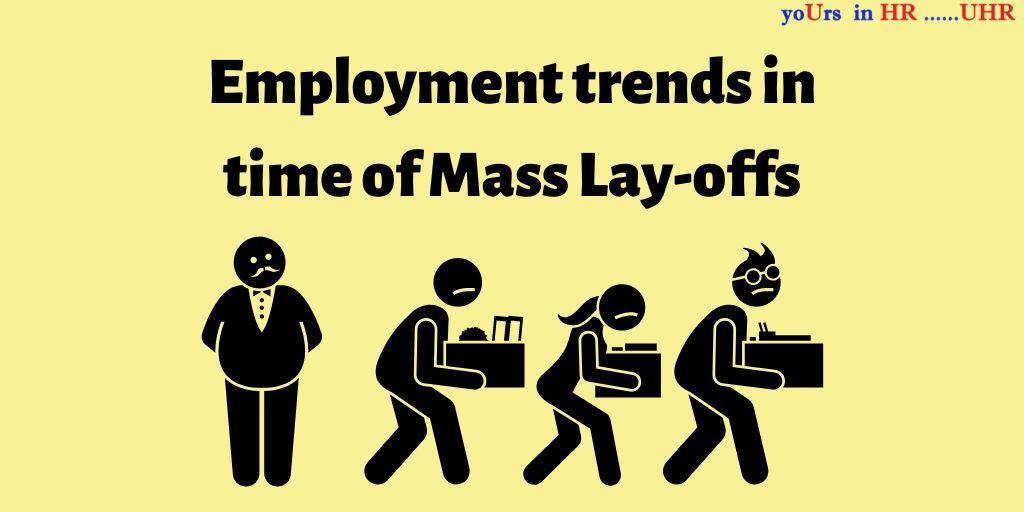
While we were busy talking about the importance of recruiting talent that stays, and how to ensure a good experience for the candidate, the world was hit by the news of mass lay-offs by big multinational tech companies. Through these events of layoffs, we can only reiterate more on the point that the job market is likely to see certain changes in the nature of candidates and their expectations. Continuing on the tangents of our previous two articles, let us quickly take a look at what are the implications of looking for jobs and recruiting amidst the layoffs.
Stability over fancy offers:
One look at many of the reels full of self-deprecating humour being shared on social media, and we will realise that many of the big companies that laid off their employees had quite ‘fancy’ packages. Lounging facilities with luxurious options, company merchandise, perks about flexibility and other present-day buzzwords, and the stamp of working for a major company- all of this worked well as long as one was working there.
It is likely that many of the now former employees of these companies would have learnt their lesson the hard way, and would be looking for things that actually matter as they search for a new job. In other words, these candidates would now be looking for stability over perks. They would be looking for companies that treat them respectfully and don’t just use expressions like ‘our company is like a big family’ for the sake of it. They would be looking for companies that actually give them a sense of job security. It might not be too far-fetched to assume that days of wanting to join a big name because they are a big name are numbered.
This takes us to the next point.
Doesn’t matter how big the name is:
As mentioned in our earlier article, gone are the days of the 70s Hindi film imagery of candidates crowding over one position at a big company. But perhaps gone also are the days of the decade of 2010s of candidates looking to join a big name.
This is an opportunity for start-ups, small and medium scale companies to show they are no less, or are perhaps even better than a big name. The ‘stamp’ may not be there yet, but the company -no matter how big or small- can offer things like:
- Showing value to the candidate’s skills and competence
- A sense of meaning to the candidate/employee in the job, by the nature of the service or product the company has to offer
- A strong set of ethical and professional values
When it comes tech layoffs, it is crucial to know that these candidates would be aware of the value they bring to table. Tech jobs, as volatile as they are, are also always in demand. This brings us to the next point.
Different candidates, similar experiences:
Many of the laid off candidates, it is said, were not even a week into the job and they got the news. On the other hand, there were many candidates who had served the company for decades. The point is companies looking to hire might find candidates of varying experience and skill level even more than usual, and it would be necessary to find a way to assess them fairly.
As an article by Recruit CRM mentions, sticking rigidly to conventional benchmarks like those of experience, or having a degree from a top college may or may not always be fair to the candidate. The diverse background of candidates in general, and not just those of the laid off pool must be considered.
Keeping this in mind during selection and interview rounds would ensure that a team full of individuals with diverse competence- skill- and experience-levels would be created, with different strengths, instead of a homogenous mix.
And as mentioned earlier, it’s no longer just a matter of perks, stamps and big salaries.
Many of the big tech companies offer great salaries, and it is likely that many of the laid off employees had it going really well. A candidate might not be swayed by a big salary, great perks or a fancy designation anymore. Showing that companies value a candidate’s skills, competence, time and commitment is necessary and job postings, descriptions and the company itself must reflect this all.

